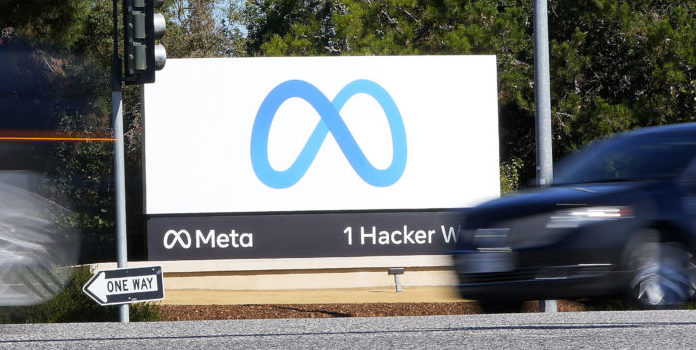(Headline USA) Hackers aligned with Russia broke into the social media accounts of dozens of Ukrainian military officers and were working to upload videos of defeated and surrendering Ukrainian soldiers when the plot was disrupted, according to a report Thursday from Meta that details a troubling increase in social media disinformation this year.
The report from the owner of Facebook and Instagram found a surge in content linked to Russia’s invasion of Ukraine, as well as new cases of domestic disinformation and propaganda in countries around the world, suggesting that tactics pioneered by foreign intelligence agencies are now being used more widely.
“While much of the public attention in recent years has been focused on foreign interference, domestic threats are on the rise globally,” said Nick Clegg, Meta’s president for global affairs and a former British deputy prime minister.
For some, however, the claim echoes an all-too-familiar tactic of using mob-mentality to advance censorship of political speech the company disagrees with while elevating a radical leftist agenda.
In several cases, as with Hillary Clinton’s Russia-collusion scandal, the coronavirus lab-leak theory and Hunter Biden’s laptop, leading social-media publishers like Facebook and Twitter have lept too soon, only to find the positions they promoted were discredited and the skeptics were validated.
Unlike Republican US president Donald Trump, the companies have not yet made any overt moves to censor Russia, although they did bend their policies against promoting violence to accomodate those made against Russian President Vladmir Putin and his compatriots.
When it comes to propaganda, Russia and its allies are major players, according to the report, with groups linked to the Kremlin spreading disinformation about its invasion of Ukraine while amplifying pro-Russian conspiracy theories at home.
But those perspectives may be relative, subject to what the reporters deem as propaganda. Ukrainian officials also have been implicated in the spread of several demonstrably false news stories.
Meta traced the effort to take over the social media accounts of dozens of Ukrainian military leaders back to a shadowy hacker organization known as Ghostwriter, which previous research has linked to Belarus, a Russian ally. Ghostwriter has a history of spreading content critical of NATO, and also has tried to hack email accounts.
“This is a tried-and-true thing that they do,” said Ben Read, director of cyberespionage analysis at Mandiant, a prominent U.S. cybersecurity firm that has tracked Ghostwriter’s activities for years. Last year Mandiant said digital clues suggested the hackers were based in Belarus, though EU officials have previously blamed Russia.
Belarus and Russia have not responded to the claims.
The report outlined other disinformation efforts tied to Russia’s invasion of Ukraine, including one involving dozens of fake accounts that spread anti-Ukrainian rhetoric.
Another network filed thousands of fake complaints about Ukrainian Facebook users in an effort to get them kicked off the platform. That network hid its activities in a Facebook group supposedly dedicated to cooking.
Within Russia, the Kremlin has blocked hundreds of news sources and websites, including Facebook and Twitter, and threatened jail time to anyone who tries to report on the war.
Meta and other big tech companies have responded by accusing Russia of conspiracy theories concerning secret US bioweapons labs—although there has been some official US acknowledgement of such facilities since the story first broke.
The companies, nonetheless, are removing or restricting Russian state-run media, targeting so-called disinformation networks and labeling content it does not remove. Twitter this week announced it would also label state-controlled media from Belarus.
The prevalence of Russian-linked propaganda and disinformation on social media shows that a more aggressive response is needed, according to the far-left activist Center for Countering Digital Hate. The shadowy, London-based group has advocated for greater censorship of opinions with which it disagrees.
“Despite taking action against state channels under enormous pressure, Meta is failing badly to contain major disinformation narratives that benefit Putin’s regime,” said Imran Ahmed, the center’s CEO.
Meta said it would be rolling out additional policies in the coming weeks and months to make sure it stays ahead of groups looking to exploit its platforms.
Nathaniel Gleicher, Meta’s head of security policy, noted that groups looking to spread disinformation and propaganda are adapting their tactics too.
“We would expect them to keep coming back,” Gleicher said.
Adapted from reporting by the Associated Press

